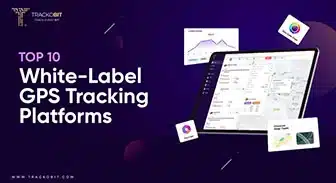-
TrackoBit
Manage commercial vehicles with the new-age Fleet Management Software
TrackoBit -
TrackoField
Streamline your scattered workforce with Field Force Management Software
TrackoField -
Features Resources
-
Blog
Carefully curated articles to update you on industrial trends. -
White Paper
Insightful papers and analysis on essential subject matters. -
Glossary
Explore an alphabetical list of relevant industry terms. -
What’s New
Get TrackoBit & TrackoField monthly updates here. -
Case Study
Explore the cases we solved with our diverse solutions. -
Comparisons
Compare platforms, features, and pricing to find your best fit.
-
About Us
Get to know TrackoBit: our team, ethos, values, and vision. -
Careers
Join the most dynamic cult of coders, creatives and changemakers. -
Tech Support
Learn about our technical support team and services in detail. -
Events
Check out the exhibitions where we left our marks and conquered. -
Contact Us
Connect with us and let us know how we can be of service.
Is Idling Affecting Your Fleet Operations Negatively?
- Author:Drishti Dua
- Read Time:8 min
- Published:
- Last Update: December 9, 2025
Table of Contents
Toggle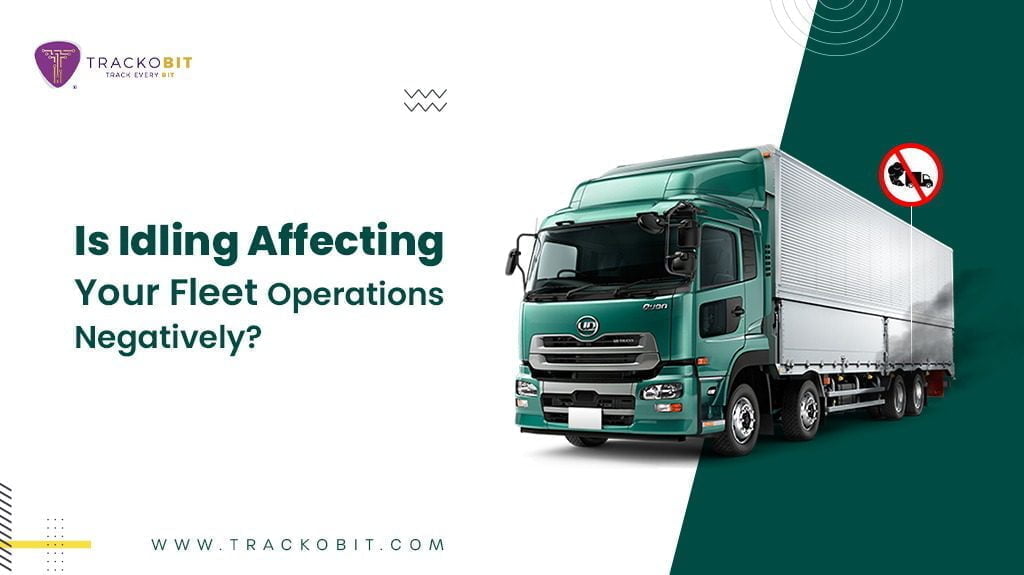
Fleet management systems are equipped with tools to reduce true idling and track operational idling. Let us learn the difference between the two.
Table of Contents
Toggle
Resource management can have a great effect on a fleet business’ profitability. But mainstream activities like fuel pilferage and road accidents leading to vehicle damage are not the only ways your fleet might be incurring losses for you. Idling might seem insignificant – what difference does some fuel make anyways, right? But the actual cost of idling goes way beyond just excessive fuel consumption!
| Did you know?
Idling your car for more than 10 seconds uses more fuel than turning off the engine and restarting it. |
On the flip side of the coin, idling can in some cases also play an important role in your business operations. Sounds confusing right? The machines employed on construction sites do not always have mobility but consume fuel for operating. Will that be an example of harmful idling?
In this blog, we will explore the meaning and consequences of idling. In contrast, we will also be looking at operational idling and ways fleet businesses can optimise their operations.
Difference between True Idling and Operational Idling
Drivers of diesel vehicles are often under the misconception that their vehicles need at least five minutes to warm up and start working. But this is untrue! A vehicle, especially newer versions can start running as soon as its ignition is turned on. While there are exceptions to this, the need to act on a vehicle that is not operating in extremely cold weather continues to waste fuel and add costs for fleet businesses.
Usually idling is boxed into one single type. It might come as a surprise, but idling can also be intentionally used for power generation. Thus, it is not the total evil that fleet businesses might think it is. Instead of looking for ways to eradicate idling altogether, it is important that they strike a healthy balance. But before we look for ways to make sure that a fleet business does not lose money to idling practices, we need to learn about the types of idling activities.
Learning this distinction makes planning and monitoring uncluttered:
- Operational Idling: A fleet business, especially in construction and agriculture has to work with heavy-duty machines. These equipment require fuel to operate but sometimes they are stationary. While idling, they cannot be deemed wasteful. This is why operational idling can be important for fleet businesses.
- True Idling: True idling is what we refer to when calculating the harmful idling time of a vehicle. It is when the vehicle’s ignition is on but it is stationary. This means that all the fuel it is using is actually going to waste. Thus, not only adding to the fleet’s cost but also producing extra pollution.
How Can True Idling Be Harmful to a Fleet Business?
As we mentioned above, true idling can be pretty harmful to a fleet business. For a large fleet running on a set budget, excessive fuel wastage is a huge wound. But the monetary downfalls are not the only negatives of idling.
They can also depreciate a vehicle’s health, forcing the engine to work without any output means that the fuel is not broken down completely and the residue clogs the engine. In the long run, this can add to the corrective maintenance cost of businesses. Partially combusted fuel also harms a vehicle’s spark plugs and exhaust system, putting the vehicle in danger of breakdown on the road.
Effects of Idling: Economical and Environmental
According to studies, idling can burn up to an eighth of a gallon of fuel. There are several kinds of harm lining up with this act. Fleet businesses lose their money on purchasing fuel, a commodity that experiences a rise in its cost every other day. But to the environment, this can mean excess pollution. Road vehicles contribute almost 290 gigagrams (Gg) of PM2.5.
Fossil fuels are exhaustible resources and using them in wasteful activity can further inflate its cost in the long run. Ultimately it is the fleet business that will have to pay, quite literally!
Pollution does not test a business’ morals alone, but can also become a gateway for heavy fines. In India alone, the fines for violating pollution guidelines can go up to 1 Lakh for one vehicle. For large fleets, imagine the cost of fines if even a handful of vehicles stop adhering to idling regulations! A deep cut to the wallets of fleet owners.
How Does Fleet Management System Help You Monitor Fleet Idling?
Connected vehicles are on the rise and with this, the adoption of fleet management systems has also experienced growth. The tools that this system includes can help businesses reduce their idling and the additional costs associated with it. Let us go through some of these features that can help you detect, calculate, and eliminate idling from your fleet operations:
Alerts and Notification
The driver behaviour monitoring system is used to see if there is any kind of malpractice going on when a vehicle is on the road. While most of the alerts related to these solutions help reduce harsh driving, there is also idling notification. This can alert the fleet managers if a vehicle is stationary even when the ignition is switched on. Thus, keeping track of all the vehicles that are outperforming their tasks.
Managers can trace these notifications to see which driver struggles with idling the most and can educate them about the harms of idling. This can prevent the business from losing money to idling and excess fuel wastage and prepare drivers better to reduce their idling practices.
Training Drivers
As we mentioned above, drivers play an important role in a fleet’s operations. In a way, if the business is the vehicle, then the drivers are their wheels. Ironic isn’t it? Most of the idling that a fleet undergoes is at the hands of its drivers. But is it their fault entirely? Many drivers are unaware of the latest technology that eliminates the need for warming up an engine before running a vehicle. Or they might be unaware of the harmful effects of idling altogether!
Some of these harmful effects include:
- Strain and damage to the starting motor of a vehicle.
- Depreciation of the vehicle’s battery due to overheating
- Wearing down of the vehicle’s engine due to added pressure to perform
- Clogging of the pollution ducts as idling does not allow complete combustion of fuel.
Data collected over a long period of time can help fleet businesses ensure pinpoint which of their drivers are using idling the most. Thus a training program can be created to teach these drivers ways of avoiding idling practices. Investing in this training can help businesses reduce a lot of their fuel consumption and expenditure in the long run.
Report Generation
One of the main features of a fleet management system is its ability to collect data and categorise it into reports. These reports can help businesses understand the loopholes in their operations and work to eliminate any issues that might be eating away at their productivity. This can also be applied to a fleet business that is incharge of several vehicles. Managers in charge of such fleets can lose a lot of money if their management is lacking.
Reports generated by the fleet management system are stored for up to six months. Thus, making long-term study observation possible. This data can be the gateway for managers to understand the driving pattern of their employees and also see if the vehicle is not performing well. The ignition activity of the vehicle can be an indicator of this.
Real-time Ignition Tracking
Live tracking is one of the main functions of a fleet management system. But that is just the beginning of the features that the system provides managers. They can also access their vehicles’ ignition status in real time. Drivers are aware of this tracking and will pay special attention to their idling activities. The incorporation of gamification amongst drivers can also add motivation to their drive to do better.
More times than not, idling is a habit rather than a malicious choice. This live tracking can help tackle this issue of idling which was previously a subconscious activity.
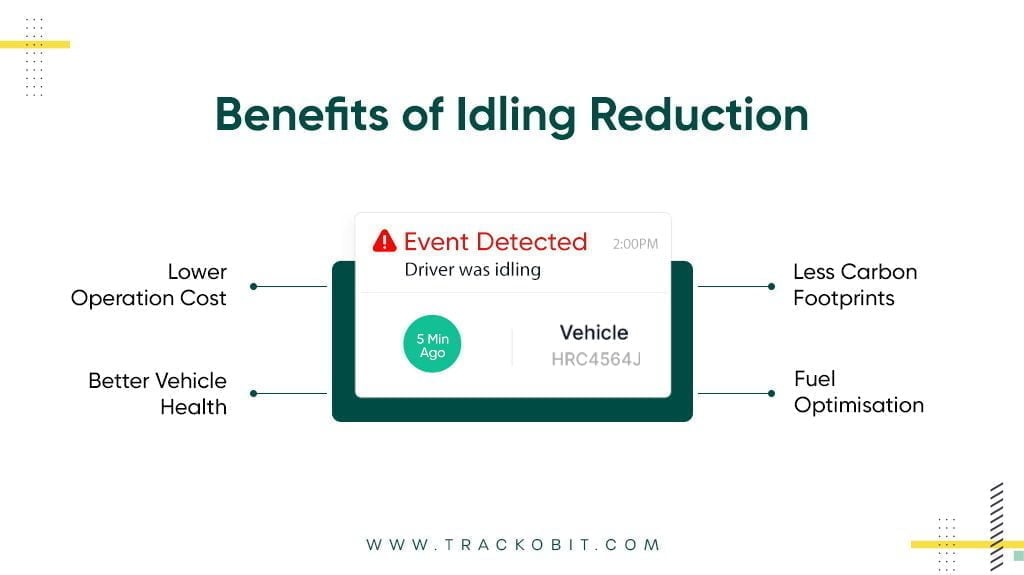
Are all Idling Practices Negative?
Now for the golden question! As we mentioned above, idling can be broadly divided into two parts – Operational and true idling. True idling is what we have been referring to in this blog up to this point.
Operational idling can be a productive part of any fleet’s operations. But the condition is that if the equipment is running without any contribution to their service, then it can be wasteful. Fleet management systems can help fleet businesses track their heavy-duty machines’ productivity. Striking a balance between ensuring maximum performance from standstill equipment and reducing idling can help businesses ensure maximum productivity and profitability!
Why Choose TrackoBit For Your Fleet Business?
Imagine being the manager of a fleet that loses most of its budget to idling with no way out of the problem. After all, fleet managers cannot tag along to every task for real-time surveillance, can they?
But if managers can’t, technology can! It can be that friend who keeps an eye on your vehicle to make sure your drivers do not indulge in idling and waste the fleet’s resources.
Makes investing in good friends worth it! TrackoBit can be your fleet business’ friend and help you optimise your fleet operations. The toolkit of solutions can help your business improve visibility and productivity, giving it an edge over industry competitors. So why waste any time when you can get in touch and try out the software for yourself!
Drishti Dua, a Content Contributor at TrackoBit has a rich background in literature and professional expertise in SaaS and technology writing. She has carved her niche in the space of Geospatial techn... Read More
Related Blogs
-
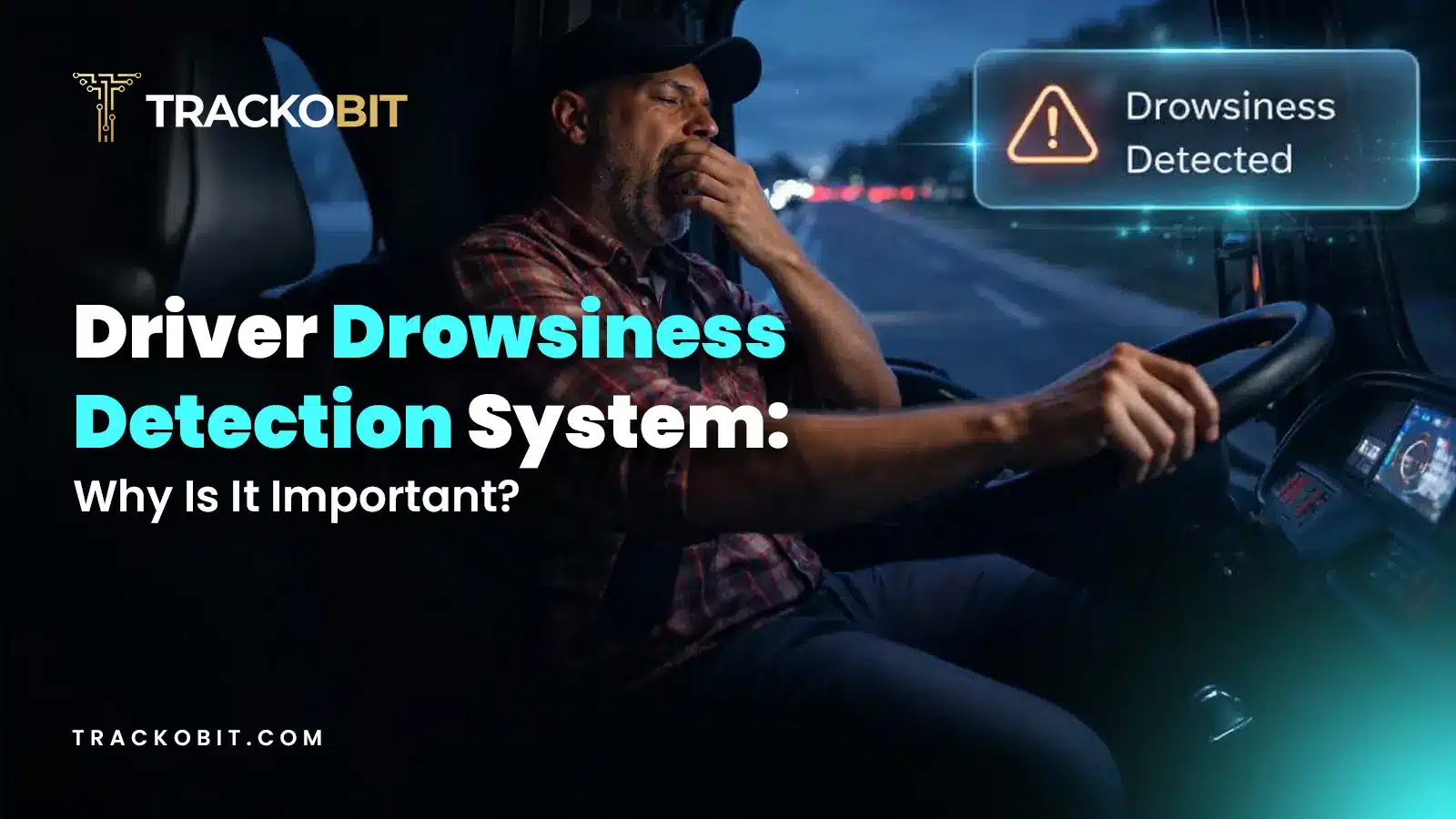
Why is Driver Drowsiness Detection System Important for Fleet Management?
Shemanti Ghosh February 4, 2026A driver drowsiness detection system is critical for fleet management. It helps prevent fatigue-related accidents and reduces operational risks through…
-
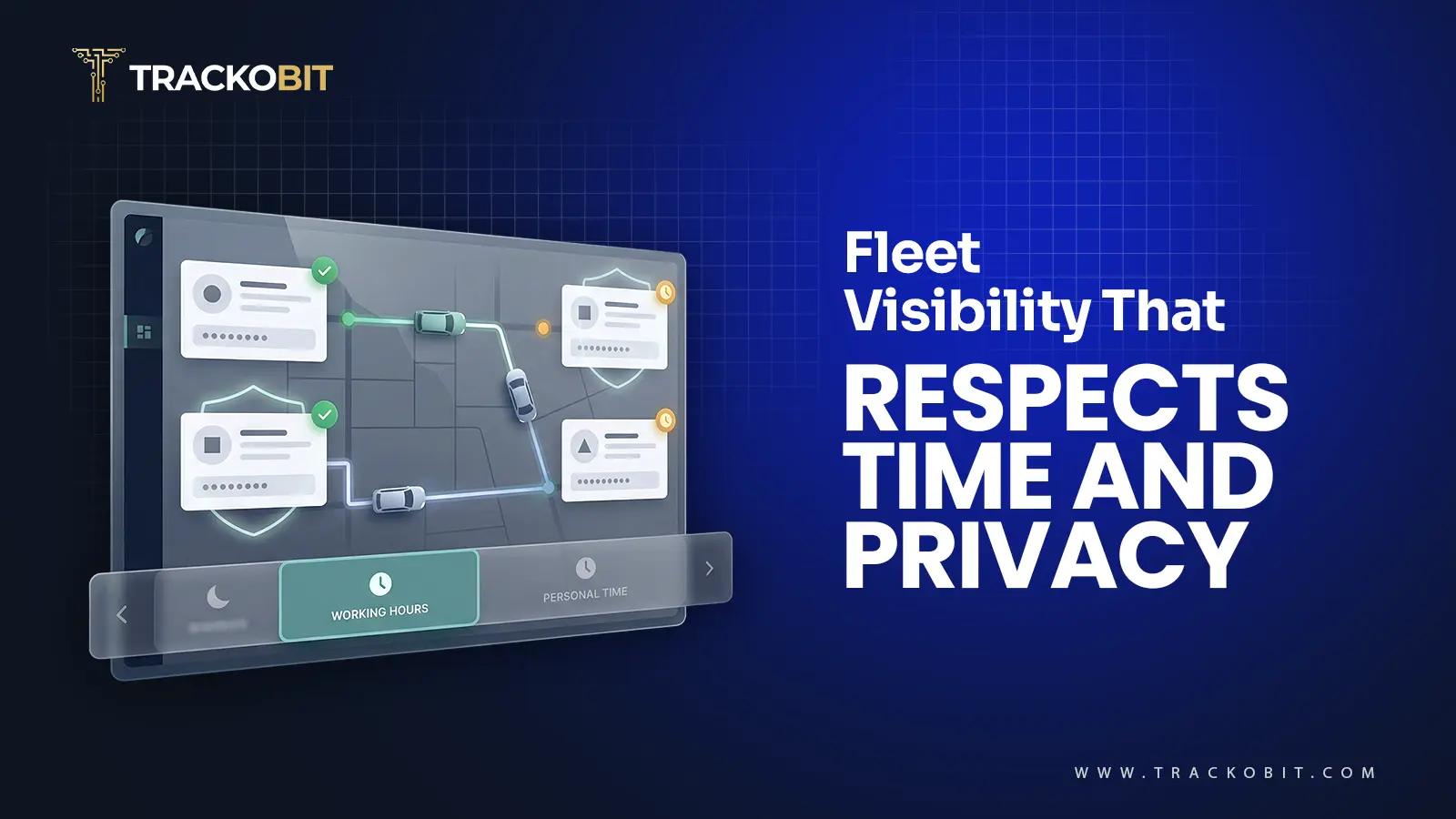
When Tracking Needs a Clock: Rethinking Fleet Visibility
Tithi Agarwal December 24, 2025Read on to understand why fleet tracking works better when it follows working hours. Because visibility should support operations, not…
-

What Makes TrackoBit’s Video Telematics Software Truly Next-Gen?
Shemanti Ghosh December 17, 2025TrackoBit’s video telematics software blends smart video intelligence with full server control. The result? Superior fleet reliability and safety.
-
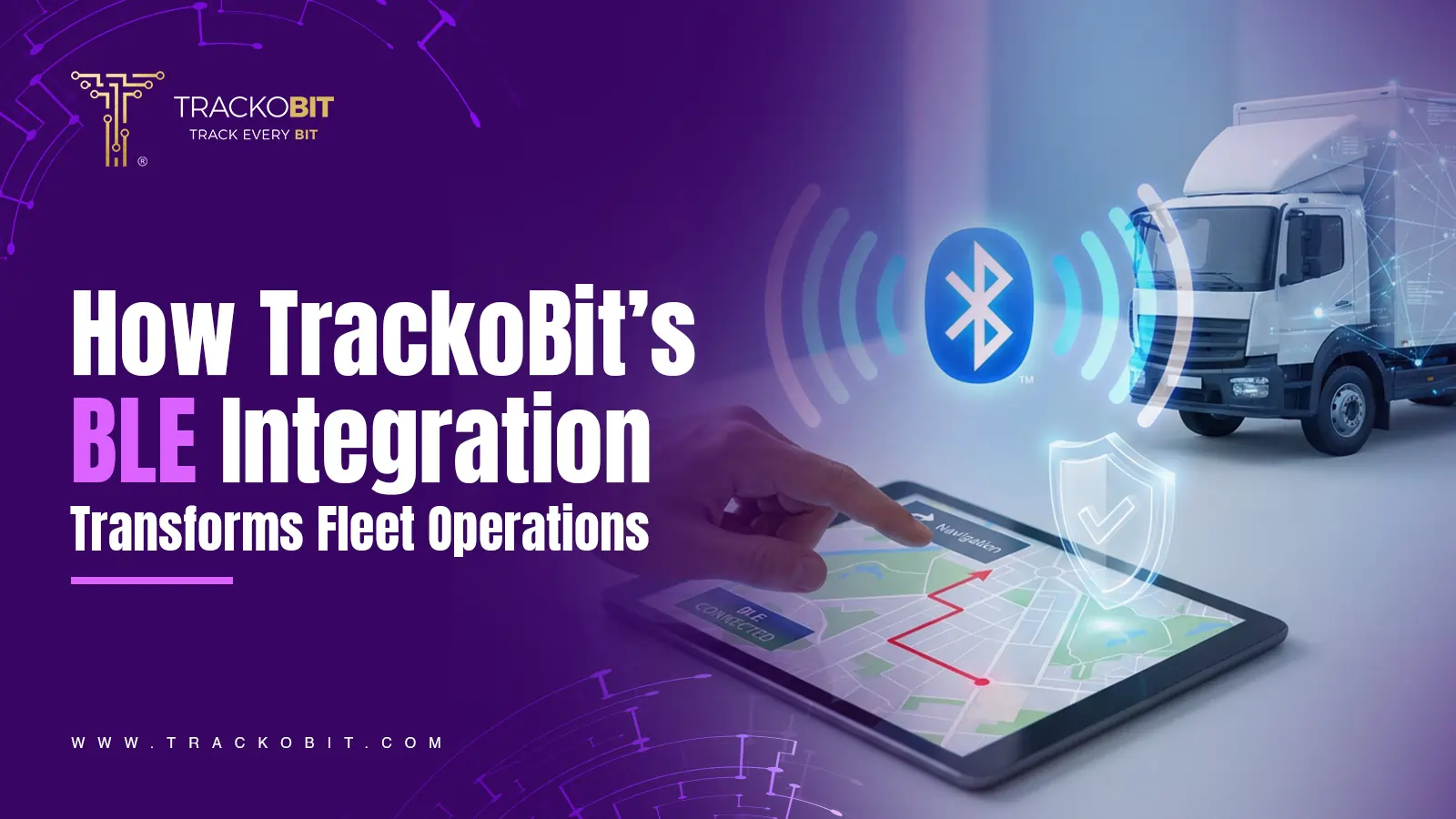
Plug, Pair, Perform TrackoBit Introduces BLE Sensor Integration
Tithi Agarwal November 26, 2025TrackoBit’s BLE Sensor Integration enables wireless, real-time monitoring with faster installs and accurate insights. It improves fleet efficiency, visibility, and…

Subscribe for weekly tips to optimize your fleet’s potential!
Your inbox awaits a welcome email. Stay tuned for the latest blog updates & expert insights.
"While you're here, dive into some more reads or grab quick bites from our social platforms!"Stay Updated on tech, telematics and mobility. Don't miss out on the latest in the industry.
We use cookies to enhance and personalize your browsing experience. By continuing to use our website, you agree to our Privacy Policy.



































